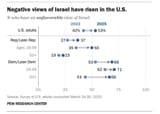Were the orthodox Jews the one doing the usury and scheming or was it another subset of jews doing that?
>>17988448
Israeli professor Ehud Sprinzak notes traditional Jewish perspective on the surrounding Gentile "law of the land" in Eastern Europe:
"Everyone knew everybody in the [Jewish community], and there was no need for official code or written law. The only formal law was the Torah and its halakhic interpretation as understood by the local rabbi... It was a basis communal conduct ... ('You help me, and I'll you') ... The attitude towards the formal law of the land was suspicion ... One has to survive it, not respect it. The art of Jewish survival within the ghetto included an elaborate system of using, avoiding, and sidestepping the [Gentile] law. [SPRINZAK, Elite, p. 178]
Israeli professor Ehud Sprinzak notes traditional Jewish perspective on the surrounding Gentile "law of the land" in Eastern Europe:
"Everyone knew everybody in the [Jewish community], and there was no need for official code or written law. The only formal law was the Torah and its halakhic interpretation as understood by the local rabbi... It was a basis communal conduct ... ('You help me, and I'll you') ... The attitude towards the formal law of the land was suspicion ... One has to survive it, not respect it. The art of Jewish survival within the ghetto included an elaborate system of using, avoiding, and sidestepping the [Gentile] law. [SPRINZAK, Elite, p. 178]

















